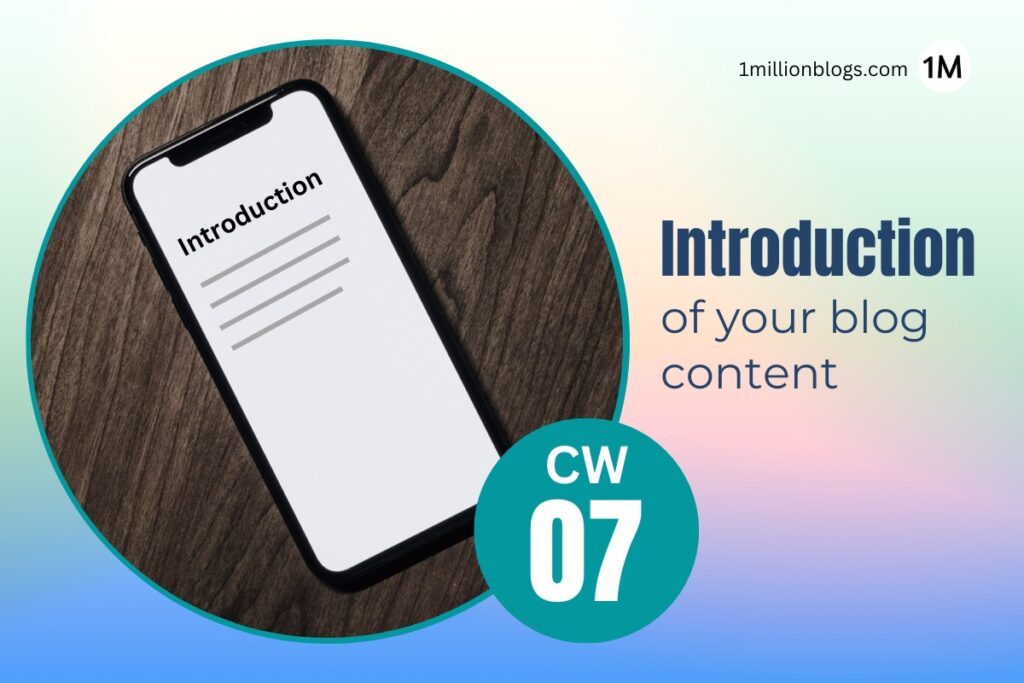Welcome to this content writing course.
Content writing has various forms, including web content, blog writing, academic writing, technical writing, copyrighting, etc. Each of these forms has a different approach to learning or implementing.
This course is focused on blog writing or web content. You must not misunderstand that by taking this course, you will have a grasp on all other forms of content writing. Blog content is different in the way that it is a long-form content written for the audience on the internet.
On the other side, literature content (poems, novels, biography, etc.) are written for literary work. Whatever I am going to cover in this content writing course will be for the audience on the internet. You don’t need to be highly skilled in grammar or English literature to become a web content writer.
This part of the session is just an introduction to the complete content writing course. The fact that we can call it lesson number 0 is because it has nothing to do with content writing but rather just preparation.
Let’s start with the first point of discussion.
1. Your learning approach
Content writing is not an instant skill to learn. It is more than some kind of procedure; instead, it is a way of thinking and expressing your thoughts, opinions, or ideas in words with a proper flow, connectivity, and expression.
Therefore, content writing demands practice.

But most beginners do not know what to practice. This content writing course will give you those basics, which you need to keep in mind while practicing or writing any content.
If you have seen karate learners, they spend years getting the perfect movement before they begin to practice it. If one wrong move got carved, may knock you down in your every fight.
So whatever I am telling you will not make you a content writer if you do not add months of practice to it.
2. Niche: To get the “Expert” tag for yourself
Focus is a key ingredient to success. As a generalist content writer, you could be open to more clients and successfully make enough revenue; however, it has some undeniable drawbacks.
As a niche-focused content writer, you stand out and are in an advantageous position. You and your content are more authoritative in the market. Your client base is loyal. Plus, you could demand higher rates. Your years of experience in a particular niche make you an expert in that niche. Your research time reduces to a great extent, therefore content are of better quality in comparative less time.
Personally, I avoid those content writers for my freelancing work who tell me that they can write on any topic. Such generalized pitching fails to impact clients, ultimately leading to either losing the client or working at minimal rates.

So, how do you fix your niche?
First of all, list down all the niches in which you are interested, check for market demand, and brainstorm with your colleagues or a mentor regarding your choice. Pick a niche that doesn’t block your writing. Something you are good at, could be something related to your subject of education.
As a beginners, challenges are obvious in your newly picked niche. Don’t jump on changing every time. Also, don’t feel trapped by your first choice; be open to thoughtful modifications.
Some niches are: fitness, travel, food, finance, insurance, money-making, digital marketing, affiliate products, business, entrepreneur, sports, growth, psychology, mindset, tutorials, hacks and tricks, entertainment, news, trends, books, culture, politics, etc.
3. Your reading resources
Reading is a tool for a writer. The most useful of all tools
“Reading for information” and “reading for writing” are two different things. For a blog writer, I will suggest a different approach to reading. Follow this process.
Search for five websites in your selected niche that you appreciate. Read a couple of blog posts every day with a slow pace and a loud voice. Follow each punctuation, note down every new word and its meaning, identify the flow, word choice, and approach, and note down the pluses and minuses of the article. Make this as your habit.
Reading gives you not just information to write better and more but also adds imaginative skills and teaches you about the structure of sentences, the pattern of paragraph word choice, rhythm, punctuation, and other cognitive skills—all of which help in your writing.

4. Three title picked for writing
For now, you must be ready with your niche and reading resources. In this content writing mentorship, we will be writing three blogs to learn the basics of content writing. Further, you can plan more topics to write on for practice.
Keep the following things in mind when selecting blog titles for writing:
- Pick something in your selected niche.
- The topic must be something you are willing to write about.
- Reader’s intent. Are people curious to read it?
- Do not pick something too uncommon.
That’s all in the introduction. If you want to schedule a discovery call, fill the form, and let’s get into a call or meeting to discover about your writing lessons.
And don’t forget to check out the next post in this content writing series. In the next lesson, we will learn why content is still king.






